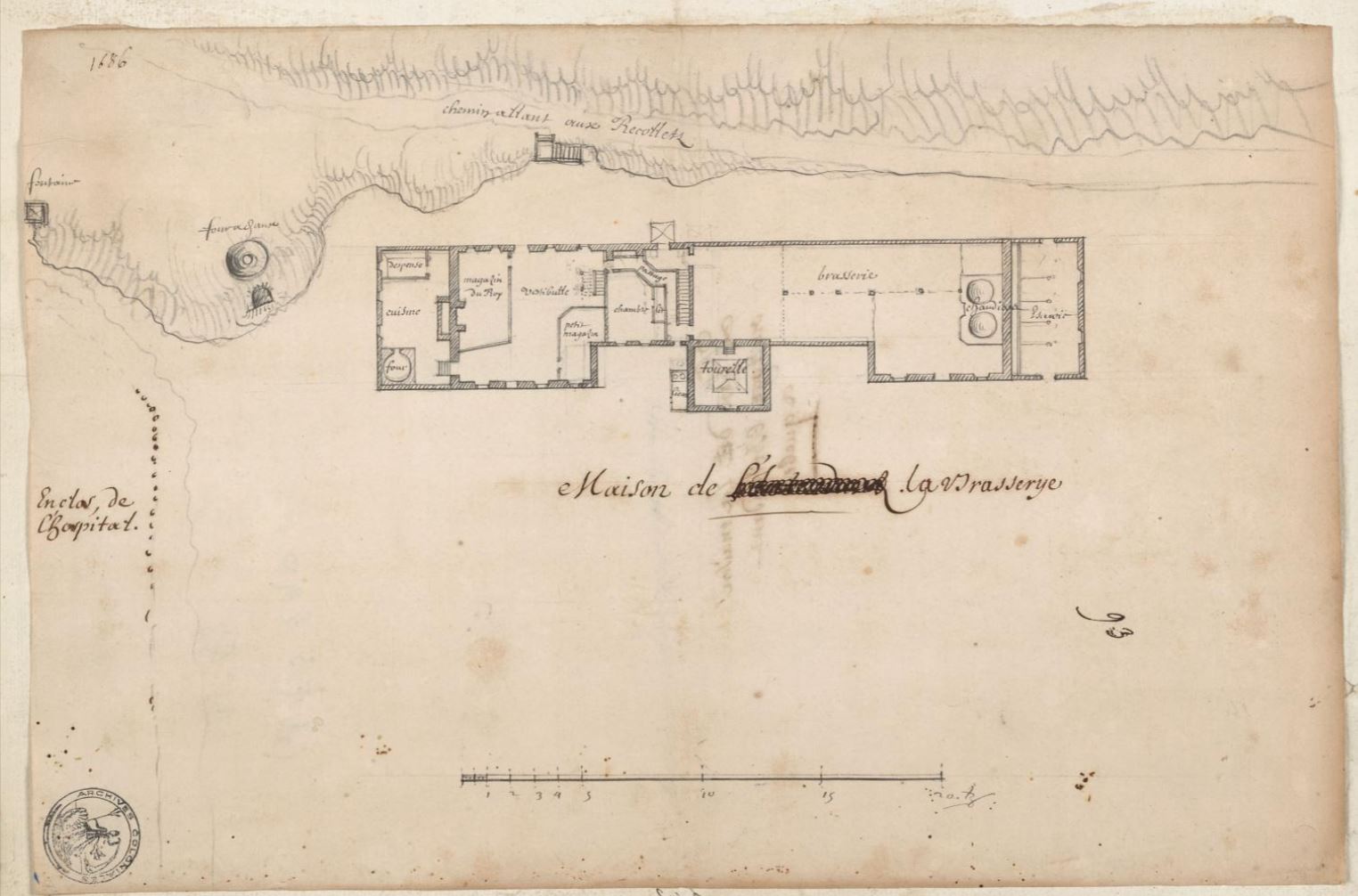Jean-Baptiste Colbert, French statesman, comptroller general of finances during the reign of Louis XIV (born 29 August 1619 in Reims, France; died 6 September 1683 in Paris, France). He was the king’s right-hand man and his work led to an unprecedented boost for commerce, industry, financial organization, justice, and royal navy forces. He greatly contributed to the rise of France on the international landscape and had a major influence on the development and settlement of New France. He was also involved in writing the Code Noir which codified slavery, notably in the West Indies and Louisiana. (See also Black Enslavement in Canada.)

(courtesy of Library and Archives Canada/2877177)
Soaring Career
Jean-Baptiste was the second of nine children in a wealthy family engaged in international commerce since the 16th century. His father, Nicholas Colbert de Vandières, was first a textile trader, but in the 1630s he left the business and region to focus on a career in finances in Paris. There, he introduced Jean-Baptiste to his influential Parisian network.
In 1640, Jean-Baptiste Colbert started working for the State and rapidly rose through the ranks. He held several positions and quickly proved his administrative talents. History took the most favourable turn for Colbert in 1651, when France faced the turmoil caused by the Fronde, a series of civil wars. At the time, power was in the hands of Cardinal Jules Mazarin, chief minister to ruler Anne of Austria, mother of Louis XIV. The violence forced Cardinal Mazarin out of the capital; he took refuge in the countryside and appointed Jean-Baptiste Colbert as his personal agent and liaison in Paris.
Colbert was so adaptable that he soon became indispensable. He was industrious and admitted to the cardinal that, “I am so naturally inclined to work that I recognize every day, in introspection, that it is impossible for my mind to bear idleness or moderate work.” Back in Paris, Cardinal Mazarin made him a rich and influential man. By the age of 30, Jean-Baptiste Colbert had acquired significant fortune and prestige. In 1657, he purchased the château de Seignelay, which came with a title of nobility: Colbert thus became the Marquis de Seignelay.

(courtesy of Library and Archives Canada/4313225)
Shortly before his death in 1661, the cardinal recommended his protégé to Louis XIV. During his entire life, the king was very close to Jean-Baptiste Colbert; the latter became his personal adviser and most powerful minister. Colbert was the main orchestrator of Nicolas Fouquet’s downfall and succeeded him as superintendent for finances. He assumed the most important roles, such as superintendent for buildings, arts and factories (1664), comptroller general of finances (1665) and secretary of state in charge of the (the royal household), the city of Paris, the clergy and the navy (1669). For almost two decades, he dominated the kingdom’s administration.
One-of-a-kind Colonial Administrator
As comptroller general of finances, Jean-Baptiste Colbert was responsible for anything influencing the economy of French provinces, Canada included. He poured considerable energy into his duty, as he would in any field of interest, and he had a major influence on matters of administration, settlement, defence and commerce in New France.
He encouraged the colony’s independence by implementing a protectionism policy, and one of its long-term effects was the establishment of the Forges du Saint-Maurice ironworks. He personally appointed Jean Talon as intendant for New France (1665–1668 and 1670–1672) when it was under threat by the Haudenosaunee. To end the conflict, Colbert recommended the transfer of 1,300 professional soldiers of the Carignan-Salières regiment to New France. Of this number, 283 stayed and many of them married one of over 800 Filles du Roi (King’s Daughters) who arrived in New France between 1663 and 1673.
Jean-Baptiste Colbert’s efforts were successful. The Canadian birth rate rose, and Canada’s population tripled in a span of ten years. Under Jean Talon, Canada became self-sufficient in salt pork and leather, and agricultural products were so abundant that the country started exporting peas, wheat, hops and even beer. (See also Brewing Industry in Canada.)

(courtesy of the Archives nationales)
After 1669, the defence of New France was administered under the Ministère de la Marine where Jean-Baptiste Colbert, then secretary of state, established policies and regulations. The relentless worker helped organize the soldiers who defended French harbours; these later evolved into a military force called the Troupes de la Marine. As of 1683, these soldiers were sent to New France to defend the country on a permanent basis. Once neglected, New France now had the administrative and military resources needed for its development.
End of Career
From 1664 to 1671, Jean-Baptiste Colbert’s substantial efforts in strengthening the French industries delivered remarkable results. For example, French draperies were exported to Spain, Italy, Germany, and even India. However, as of 1672, the costs of the Franco-Dutch war had a significant impact on the state’s financial aid to the economy. As a result, many French factories went into decline or closed down. Furthermore, Jean-Baptiste Colbert’s quick reforms faced commercial competition by the British and the Dutch and were impeded by the Old Regime’s archaic and feudal economic structures.
In the 1680s, Jean-Baptiste Colbert’s influence on Louis XIV decreased. However, despite the efforts of his main rival, the Marquis of Louvois, Colbert continued to play an essential role in managing the state’s affairs until his death. It's also around this time that Colbert helped draft the first Code Noir ― a legal text that would legislate slavery in some French colonies, notably in the West Indies and in Louisiana. ( See also Black Enslavement in Canada.) In 1683, Louis XIV’s “top servant” died, worn out by his hard work.

 Share on Facebook
Share on Facebook Share on X
Share on X Share by Email
Share by Email Share on Google Classroom
Share on Google Classroom


